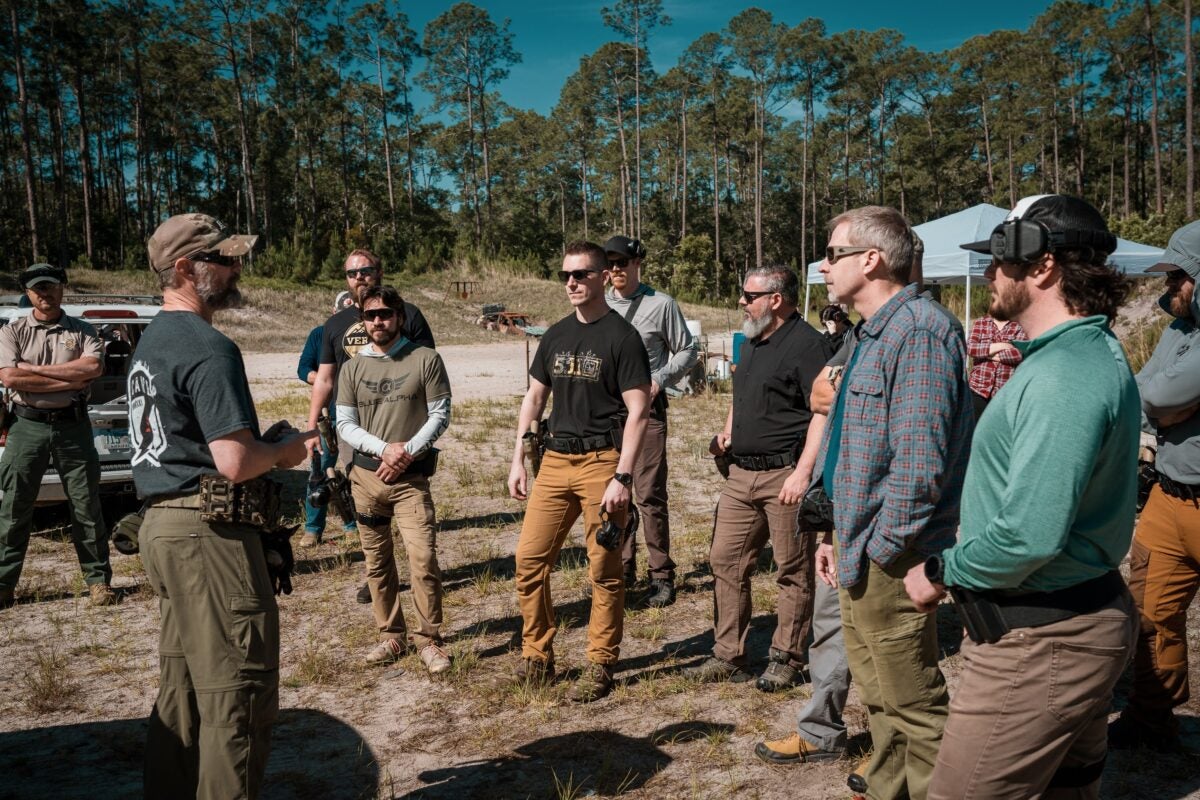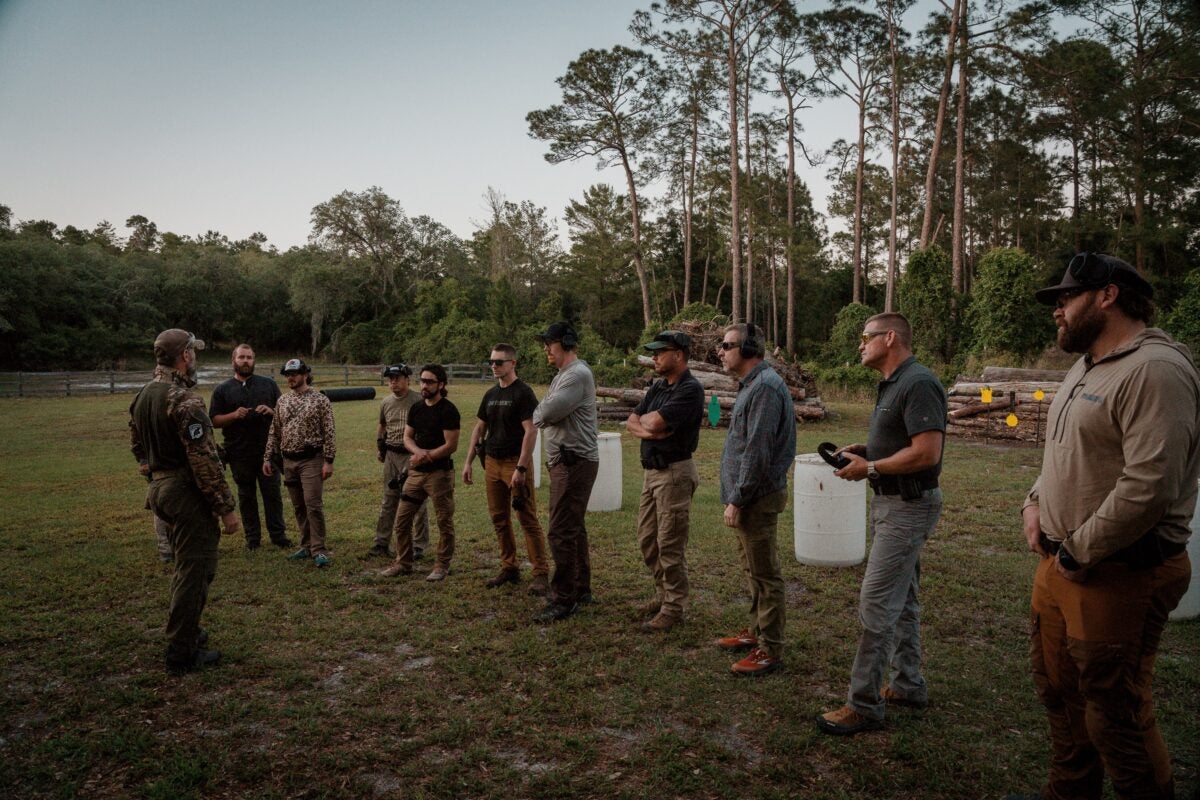Teaching Others About Firearms – The 2 Most Common Questions Asked
Phil Godding 03.28.25

There are two common questions that seem to come up during every class I’ve ever taught. As students new and experienced come through my courses I have heard it all. From artfully delivered questions that make even me think to ones that maybe shouldn’t have been asked. Through it all, there will always be two common questions that keep reoccurring.
Teaching Others About Firearms on AllOutdoor
- Teaching Others About Firearms – Being a Firearm Historian in Something
- Teaching Others About Firearms – Gift Givers & Gift Receivers
- Teaching Others About Firearms – What Exactly is a Teachable Moment?
- Teaching Others About Firearms – Knowing Who You Are & Roughing It
Common Questions #1
The first question is a legal question from some “authority” on some website that makes a claim about some legal matter. Usually the question has to do with: “is it a crime if I wear a hoodie while otherwise legally carrying a pistol… is it a crime to wear a medical mask while otherwise legally carrying my pistol… is it a crime to use an ATM while otherwise legally carrying my pistol… is it a crime to wear my bulletproof vest while otherwise legally carrying my pistol…?” Any seasoned instructor can probably add a dozen other questions.
My responses are three questions of my own:
- Where did you get that information? I often follow that question with a bit of sarcasm [I cannot help myself] “because we know that everything on the internet is true.”
- How did it make you feel when you “heard” that opinion? Some students are aghast that “influencers” post information that is designed to evoke an emotional response – whether true to not.
- Have you actually read the statute that you are questioning? I warn the questioner that I’m suggesting something dry and boring but they can easily find – in every state – the actual statute that applies to their question. They might be surprised what they find.
I do spend time talking to legislators and reading statutes. I don’t rant at elected officials, but I listen to their reasoning. Then, I ask if they would like to hear my concerns and those of my students. After listening to my concerns we have a dialog. They then often refer me to the state statutes and urge me to read them for themselves. I won’t spoil the surprise, but the answer to all the above common questions is the same. Find the statutes and see for yourself.
Sometimes the best teacher is one who teaches the student how to think for themselves.
Common Questions #2
The second common question is as old as the self-contained cartridge: “Is my [fill in the blank] caliber pistol a good defensive round?” I have a really ugly show and tell prop that I bring out. My demonstration is an old ruler I found hiding in my desk with various calibers super glued [rather poorly because I used Gorilla glue that foams like a rabid racoon] arranged from smallest to the largest. The smallest is .22 caliber and on the other end of the stick is a .357 magnum. Why not .50 caliber? [I have one 50 cal. cartridge, but no experience with shooting anything that big so I cannot speak from experience.] Why no .41 or .44 magnum or otherwise? My wrists and I don’t want to own anything that big. So, again, I cannot speak from experience. We talk about size, shooting ability, and lethality. As in most things in life everything is a tradeoff. Then, I ask them to Google reliable public databases on gunshot deaths and to pay attention to the size of bullet and relative lethality.
Sometimes the best teacher is one who teaches the student how to think for themselves.

